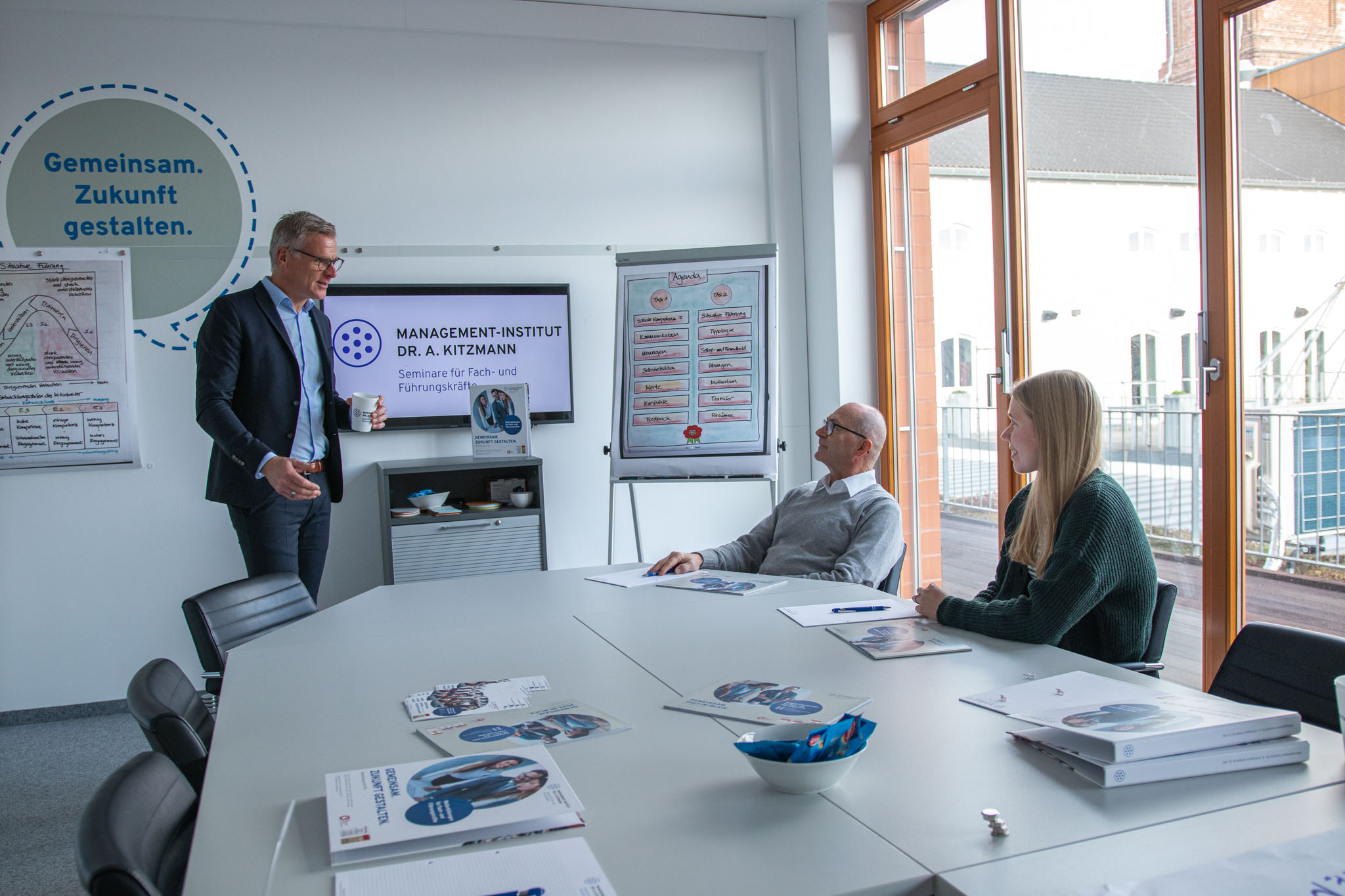
The most important leadership skills and how to learn them
Good leadership skills are crucial as they influence the motivation, performance and satisfaction of employees. But what skills are required for successful leadership and what competencies will be needed in the future? This article gets to the bottom of these questions.
What are good leadership skills and why are they important?
Leadership skills describe a leader’s ability to influence the behavior and attitude of their employees in order to achieve specific goals. Leaders take on management functions such as organizing, making decisions, or planning, and at the same time they have a direct influence on their employees.
Competent leaders are crucial for a company’s success for several reasons:
- They build employees’ trust in management
- They increase employee motivation through meaningful goals
- They boost employee performance through feedback
- They provide orientation through clear communication and decisions
The most important leadership skills
The most important leadership skills can be divided into four categories:
1. Social skills
Leaders with strong social skills can communicate clearly and convincingly, and they are able to structure and run meetings productively. They can also identify and resolve conflicts early on, reducing tensions in the team.
2. Professional skills
Good subject knowledge is the foundation of good leadership. Employees need to trust that their leader is able to make well-founded decisions. This includes knowledge of products and processes, industry expertise, knowledge of organizational rules, and understanding leadership tools.
3. Personal skills
A leader with personal skills has qualities such as self-reflection, the ability to take criticism, and self-awareness. These abilities help them handle criticism, question their own behavior, and develop themselves further. They are also flexible and decisive, allowing them to respond to change and make quick decisions confidently.
4. Methodical skills
A leader’s methodical skills include the ability to work and organize systematically, as well as delegate tasks. Problem-solving techniques are also part of this skill set, helping leaders respond flexibly and efficiently to challenges.
Leadership skills of the future
The world of work is undergoing significant change. Digital transformation, demographic shifts, and new forms of work are presenting organizations with new challenges. In this environment, traditional leadership styles are no longer enough. Instead, new skills are needed to guide employees through change.
1. Inspirational leadership
Leaders should motivate and inspire their teams with a clear vision for the organization. This fosters employee identification with the company’s goals and creates emotional commitment.
2. Ethical leadership
Good leaders act responsibly and fairly. They adhere to clear values and demonstrate integrity. In this way, they strengthen employees’ trust and build a lasting positive corporate culture.
3. Authentic leadership
Authentic leadership means being honest and credible. Leaders should communicate openly and consistently live their values. This credibility builds acceptance in the team and reduces uncertainty.
4. Health-promoting leadership
Health-promoting leadership is seen as a key future skill because it actively contributes to employee well-being. Leaders who promote healthy work recognize and reduce work-related stress and support a healthy work-life balance.
Learning and developing leadership skills
Leadership skills are not innate but can be learned and improved. There is no single right leadership style—leaders need to adapt to different situations and significant changes. Leadership skills can be developed through targeted reflection, training, and continuous learning.
Practical tips to improve leadership skills
Here are tips you can implement immediately to strengthen your leadership skills:
- Communicate clearly and openly with your team
- Provide regular feedback to your employees
- Don’t ignore conflicts—try to resolve them early
- Reflect on your own behavior
- Stay open to new things and be willing to develop yourself
Even more hands-on advice now in the seminar (held in German):
Vom Mitarbeiter zur Führungskraft
How coaching and seminars can help
Coaching and seminars are effective tools for building leadership skills. They offer leaders the opportunity to practice important skills in a targeted way and to reflect on their leadership style under professional guidance.